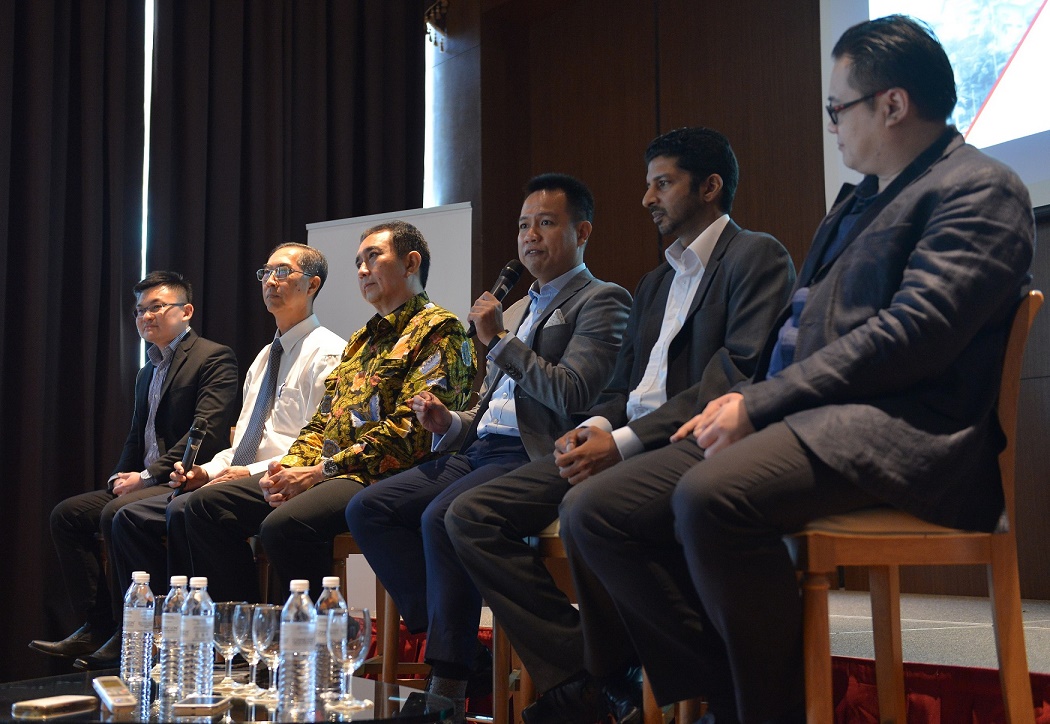The study, commissioned by Malaysia Digital Economy Corporation (MDEC), focuses on six robust emerging countries in the region – Cambodia, Indonesia, Myanmar, Philippines, Thailand and Vietnam. It aims to provide MSC companies with insights and recommended strategies, as well as help connect them with viable foreign partners, thus expediting the process of market entry and operations set-up in these new markets.
“ASEAN has seen robust growth in recent years with on-going market liberalisation and integration. As these markets continue to develop and move towards becoming a knowledge economy, the ICT sector plays a key role in enhancing market competitiveness and economic growth,” said Norhizam Abdul Kadir, Vice President, Infotech Industry Development, MDEC.

The ASEAN ICT Market Landscape Study examines the macroeconomic backdrop, competitive dynamics, growth trends and forecasts, key investment focus segments and verticals, as well as the major drivers and challenges of the ICT market in each of the six countries. It also recommends market entry strategies and includes the profiles of 10 pre-identified potential system integrator partners in each country that have been reviewed and approved by MDEC.
“The ASEAN ICT Market Landscape Study is part of MDEC’s Global Acceleration and Innovation Network (GAIN) initiative. In line with MDEC’s charter to grow MSC companies, GAIN is a long-term globalisation intervention programme that aims to create a robust ecosystem to help catalyse local companies with the potential to become global tech icons,” explained Norhizam.
Tremendous growth potential
The ASEAN ICT Market Study by IDC also highlighted that ICT spending in ASEAN is forecasted to grow exponentially over the next few years as it is a key enabler of economic development. Moreover, the increased adoption of 3rd Platform technologies like cloud, mobility and analytics is also expected to spur ICT spending.
The projected IT spending for each of the six countries is as follows:
- Cambodia: IT spending is expected to grow at a CAGR of 6.6 percent to achieve US$259.9 million by 2019, predominantly on hardware spending, with an uptick of IT services seen within the next 5 years. In terms of IT services, IDC expects that healthy spending for hardware and software deploy services as well as security services will help service market to strongly increase in coming years
- Indonesia: IT spending is expected to grow at a CAGR of 9.2 percent to achieve US$18.8 billion by 2019, predominantly on hardware spending, with an uptick of IT services seen within the next 5 years. Meanwhile, the IT services market is anticipated to reach US$1.3 billion by the end of 2016
- Myanmar: Given the poor state of ICT infrastructure and access in the country, hardware sales currently represent the primary driver of IT spending through 2019. Hardware spending is forecasted to reach US$256.41 million by 2019, representing 12.49 percent CAGR. Meanwhile, software spending is expected to reach US$30.15 million by 2019, representing 11.54 percent CAGR. As for IT services, spending is projected to reach US$15.07 million by 2019, representing 10.42 percent CAGR
- Philippines: IT spending is expected to grow by 10 percent CAGR by 2019 and is skewed toward hardware, with more than 70 percent focused on devices such as smartphones and tablets.
- Thailand: IT spending is expected to grow at 3.7 percent CAGR (2014-2019) achieving US$13.6 billion by 2019, pre-dominantly on hardware spending with continued increasing in IT services. The IT services market is anticipated to reach US$4.01 billion by the end of 2019.
- Vietnam: Hardware spending is forecasted to reach US$5,932.11 billion by 2019, representing 4.5% CAGR, while software spending is projected to reach US$403.84 million by 2019, representing 10.98% CAGR. IT Services spending is anticipated to reach US$574.47 million by 2019, representing 12.64% CAGR
Key Verticals
In line with the ICT adoption trajectory trends, the Banking and Financial Services Institution (BSFI) as well as Communications and Media sectors top the list as key verticals looking to invest in all six countries, presenting the biggest opportunities for MSC exporters.
The public sector, especially Government, is also a hot vertical in all countries, with the exception of the Philippines.
Other top priority sectors across all six countries covered in the ASEAN ICT Market Landscape Study include Retail and Manufacturing.
Additionally, for Myanmar, the Hospitality sector has also been marked as a priority vertical, while in the Philippines increased spending is also expected from the Services, Logistics and Business Process Outsourcing sectors.
GAIN Initiative – Accelerating the globalisation journey
Launched in January 2016, the MDEC Global Acceleration and Innovation Network (GAIN) initiative is expressly created to help grow high-potential MSC-status companies to be regional and global players.
The GAIN programme enables companies to accelerate the journey of going global and amplify the impact of globalisation by leveraging MDEC’s support and using the Government’s connections to help these companies.
As a long-term global intervention programme, the initiative identifies four key pillars that are essential for companies to accelerate their business in new markets. The four pillars are:
- Market Access. To increase export revenue and regional presence, key focus areas and activities conducted include market insights, business missions, immersion programmes, identification of soft landing zones, market partner linkage and brand building
- Risk Capital and Mergers and Acquisitions. To help companies achieve funding required to scale globally, MDEC will assist companies in identifying and facilitating deals with market capital players and local or foreign investors as well as partner matching. Companies will also receive business advisory and coaching as well as support in enhancing their pitching skills
- Technology and Business Disruption. Key focus areas include Future Proof Technology R&D, IP Creation, Technology Innovation Series and Commercialisation Platform. To this end, MDEC provides guidance for a structured innovation approach that will increase innovation success rates and accelerate growth through a process of subject matter expert validation, infusion of proven technologies through proof-of-concepts and last but not least, assistance to commercialisation
- Scale Up Excellence. As a foundation for globalisation, MSC companies need to be willing to invest in internal transformation to be able to scale up effectively and efficiently. Covering 10 percent classroom, 20 percent networking and 70 percent live experiences, this seven-month programme focuses on four key aspects for change – leadership transformation, business processes, business model and culture reengineering
###
About Malaysia Digital Economy Corporation (MDEC)
Malaysia Digital Economy Corporation (MDEC), previously known as Multimedia Development Corporation (MDeC), was incorporated in 1996 to strategically advise the Malaysian government on legislation, policies and standards for ICT and multimedia operations as well as to oversee the development of the Malaysian Multimedia Super Corridor (now MSC Malaysia), the platform to nurture the growth of Malaysian Small and Medium Enterprises (SMEs) in the IT industry whilst attracting participation from global ICT companies to invest in and develop cutting edge digital and creative solutions in Malaysia.
In 2011, MDEC’s mandate was broadened by the Prime Minister to include driving Malaysia’s transition towards a developed digital economy by 2020 through Digital Malaysia. In 2012, Digital Malaysia was officially unveiled as the nation’s transformational programme to achieve this aim. Digital Malaysia is the national agenda towards a sustainable digital economy built upon a vibrant domestic ICT industry, transformative use of digital solutions by government, businesses and citizens, as well as a robust enabling ecosystem.
Today, both MSC Malaysia and Digital Malaysia run concurrently to spur Malaysia’s ICT industry development and digital transformation, under the purview of MDEC.
For more information, please visit www.mdec.my








